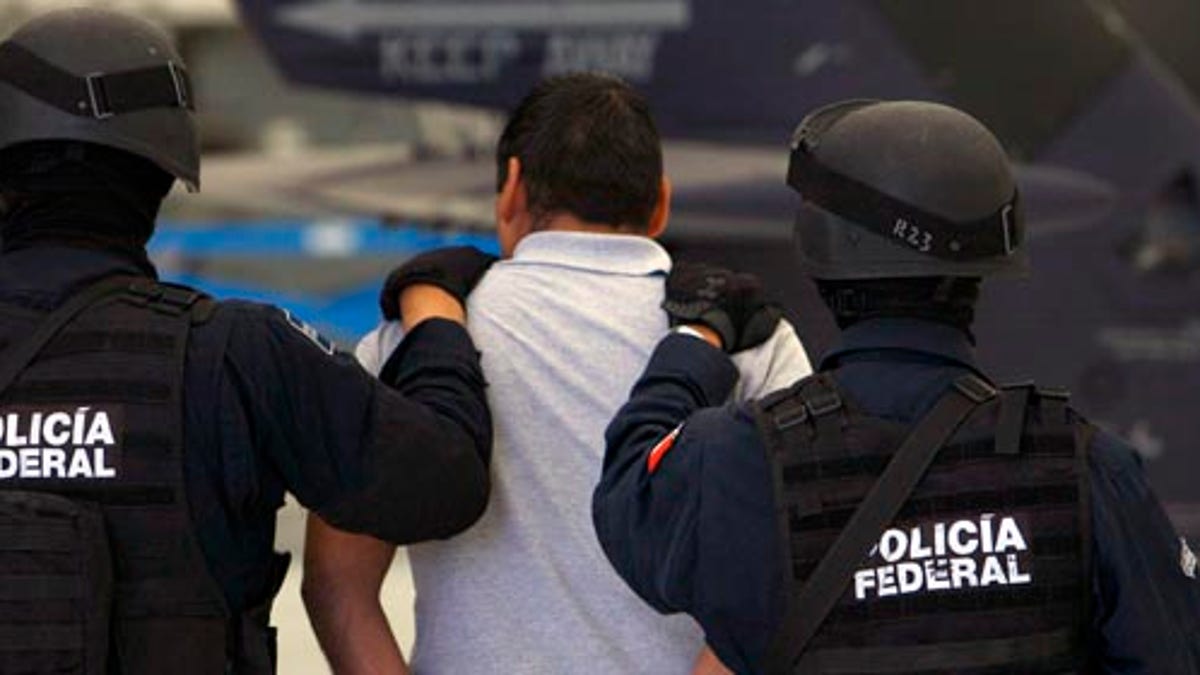
Mexican police have captured high-profile drug kingpins in recent years, but complaints of abuse and corruption from members of the force have skyrocketed. (AP)
More than $1 billion in U.S. aid has done nothing to stem the rampant corruption and human rights violations within Mexican law enforcement, and lawmakers ought to rethink the flow of another $900 million in taxpayer dollars earmarked for south of the border, according to a new report from a Washington nonprofit.
The aid is part of the 2007 Merida Initiative, which promised Mexico's federal police force funds for equipment and training, but tied the money to efforts to curtail corruption and abuse within the vast department. But the Washington Office on Latin America found complaints to Mexico's Human Rights Commission have exploded over the same time, rising to 802 in 2012 from 146 six years earlier. Although the authors recognize Mexico’s attempts to improve its dysfunctional criminal justice system, they found it has failed to root out corruption and human rights violations among its police officers.
“As it determines with the Mexican government how to allocate the remaining $900 million in funds through the Merida Initiative [in the current fiscal year], the report recommends that the U.S. government prioritize efforts to strengthen accountability mechanisms for Mexico’s police,” wrote Maureen Meyer, the report's author.
Rep. Nita Lowey, D-N.Y., proposed a bill restricting a portion of aid to Mexico pending certification from the State Department regarding improved transparency and accountability of police forces at all levels, including investigating and prosecuting human rights violations and enforcing the prohibition on the use of testimony obtained through torture.This provision was removed beginning in the Fiscal Year 2012 bill, with language instead in the nonbinding report.
Lowey’s office declined comment but the Obama administration is reportedly requesting a 40 percent cut in the remaining Merida Initiative funding for fiscal 2015.
The U.S. needs to put more emphasis on training rather than just equipping Mexican law enforcement, Meyer said.
"The study points out the fact that emphasizing just the hardware comes with a lot of risks in countries that don't have a lot of control over their personnel, especially when there is a risk for these police to go over to the dark side and work for the cartels," Meyer said. "Mexico has had many of these incidents."
She referred to an incident in August when two CIA agents travelling with Mexican Marines outside Mexico City were fired upon by Mexican Federal Police. And despite “short-term tactical victories” like the recent arrest of Sinaloa Cartel boss Joaquin “El Chapo” Guzman, Mexico has failed to build "the rights respecting institutions Mexico needs," Meyer said.
With a long history of torture and false imprisonment, it was hoped the additional training and watchful eye of the U.S. government would have caused human rights violations to decrease.
Meyer said there has been a trend to improve police oversight in Mexico but it hasn't been consistent or widespread with gaps occurring not only in investigating cases of corruption or human rights violations but actual prosecutions.
After Mexican President Pena Nieto was elected in 2012, he reportedly implemented a “pause” on the Merida initiative, suspending U.S.-funded training programs, cooperative working groups, and other joint initiatives.But a spokeswoman for the Mexican Consulate in Washington,said not only has Merida not been suspended, it is working as intended.
“The Merida Initiative has not been suspended," said Vanessa Calva Ruiz. "Mexico and the United States continue to cooperate within the framework of that initiative to combat transnational organized crime, which affects communities in both our countries,” said Vanessa Calva Ruiz. “The Merida Initiative was refocused on strengthening institutional capabilities, as well as on crime and violence prevention to address the causes of organized crime, not simply the consequences.”












































